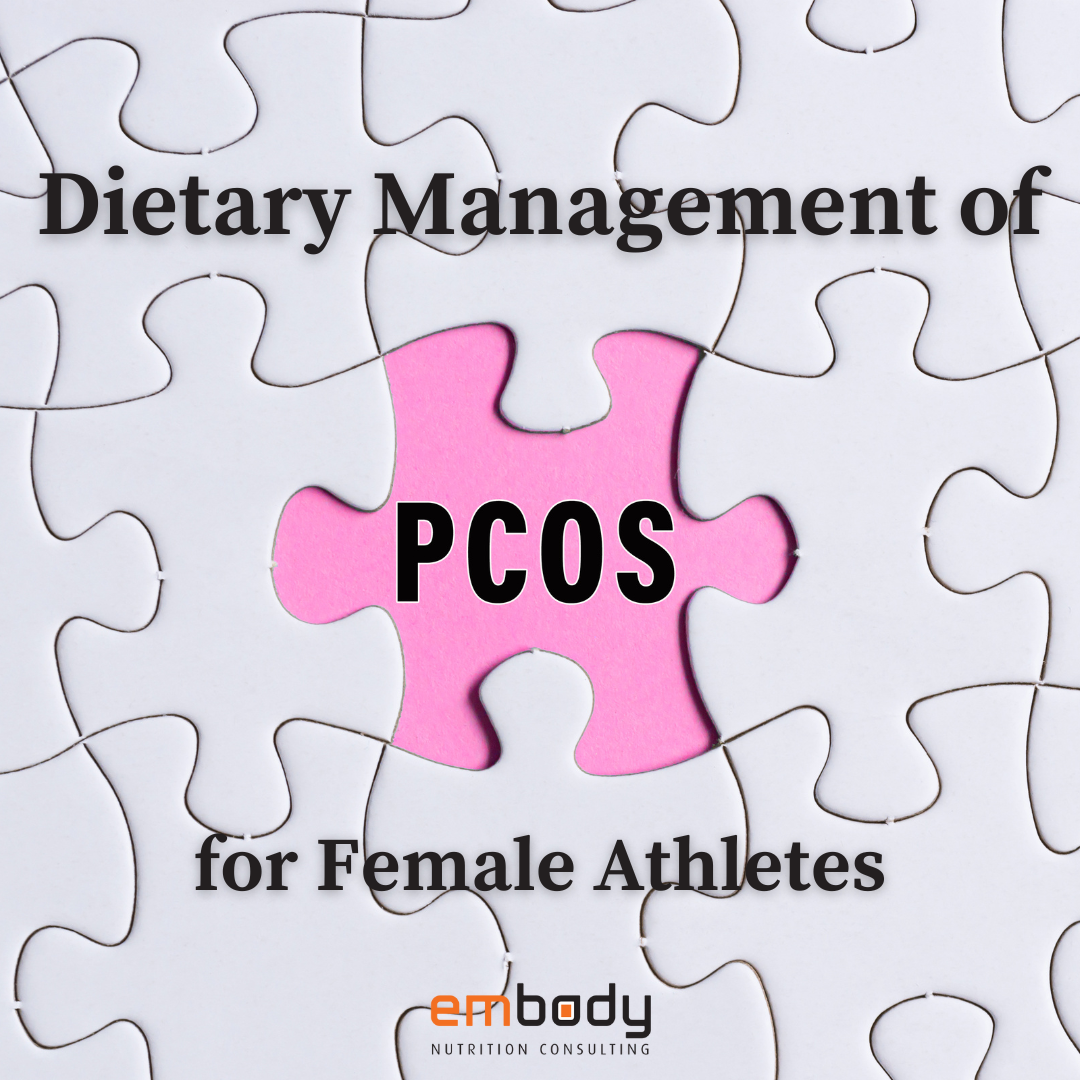Polycystic ovary syndrome (PCOS) is one of the most common endocrine problems seen in women of reproductive age and can affect 8-13% of people in the general population but appears to be higher among female athletes. Often people with PCOS are not aware of their condition and it can sometimes go undiagnosed.
What are the signs and symptoms?
PCOS can affect menstrual cycle, hormones, insulin production, body weight, fertility and the heart and blood vessels.
A diagnosis of PCOS is made with at least 2 of the following criteria:
- Irregular periods: Infrequent or prolonged menstrual cycles or sometimes absent periods. Periods can be very heavy.
- Elevated Androgens: Elevated levels of male hormones (such as testosterone) may result in excess facial and body hair, and occasionally severe acne and male-pattern hair loss.
- Polycystic ovaries on ultrasound: The ovaries may be enlarged and contain small collections of fluid (follicles) surrounding the eggs. As a result, the ovaries may fail to regularly release eggs and can result in reduced fertility.
Insulin Resistance and Carbohydrates
Insulin resistance in people with PCOS is very common. Insulin resistance means that the body’s cells don’t respond as well to insulin, and therefore it needs more of it to help break down sugars from the carbohydrates that we eat. For athletes with PCOS, it can be helpful to balance your carbohydrate intake throughout the day, to ensure that your blood sugars levels don’t spike to high levels. Focus on eating low GI (glycemia index) carbohydrates most of the time, as these foods are broken down by our bodies more slowly, and therefore release sugar over a longer period, giving the insulin a chance to break this down!
Low GI Foods Include:
- Oats
- Brown rice/pasta
- Wholemeal/wholegrains bread
- Lentils/beans/chickpeas
- Sweet potato/pumpkin
Healthy Fats
For athletes exercising regularly, oxidative stress on the muscles can occur, due to the increase in oxygen consumption. It can be beneficial to eat a diet high in anti-inflammatory foods, which can help decrease inflammation or relieve muscle soreness. Foods that are high in unsaturated fats containing omega-3 and omega-6 are a common source of anti-inflammatory foods, are also provide lots of energy which is vital when exercising at a high intensity level.
- Avocado
- Oily fish (eg. tune and salmon)
- Nuts & seeds
- Olive oil
Lean Protein
Choosing lean sources of protein or good quality protein, will help with muscle recovery and growth, whilst reducing the amount of saturated fat in your diet, as some meats often have high amounts of fat in them.
- Turkey
- Chicken breast
- Fish
- Eggs
- Legumes
Snack options for PCOS management
These are a few foods that you can incorporate as snacks or as part of meals. Remember to focus on choosing low GI carbohydrates, lean protein and unsaturated (healthy) fats and then build a meal out of these to help provide enough energy for maintain high quality performance, whilst also helping to manage some of the side effects of PCOS.
| Low GI Carbohydrates | Lean Protein | Unsaturated Fats |
| Crackers Rice cakes Wholemeal pasta/rice Wholemeal/wholegrain bread Starchy vegetables (eg. Sweet potato, zucchini, pumpkin etc.) Chickpeas Beans/legumes | Cheddar cheese Yoghurt Low fat Milk Turkey Tinned tuna/salmon Chicken | Avocado Nuts & seeds Olive Oil Salmon |
Everyone’s individual nutrition needs are going to vary and it important to get personalised advice specific to your unique situation. Please get in touch today if you need assistance in managing your nutrition for PCOS.

